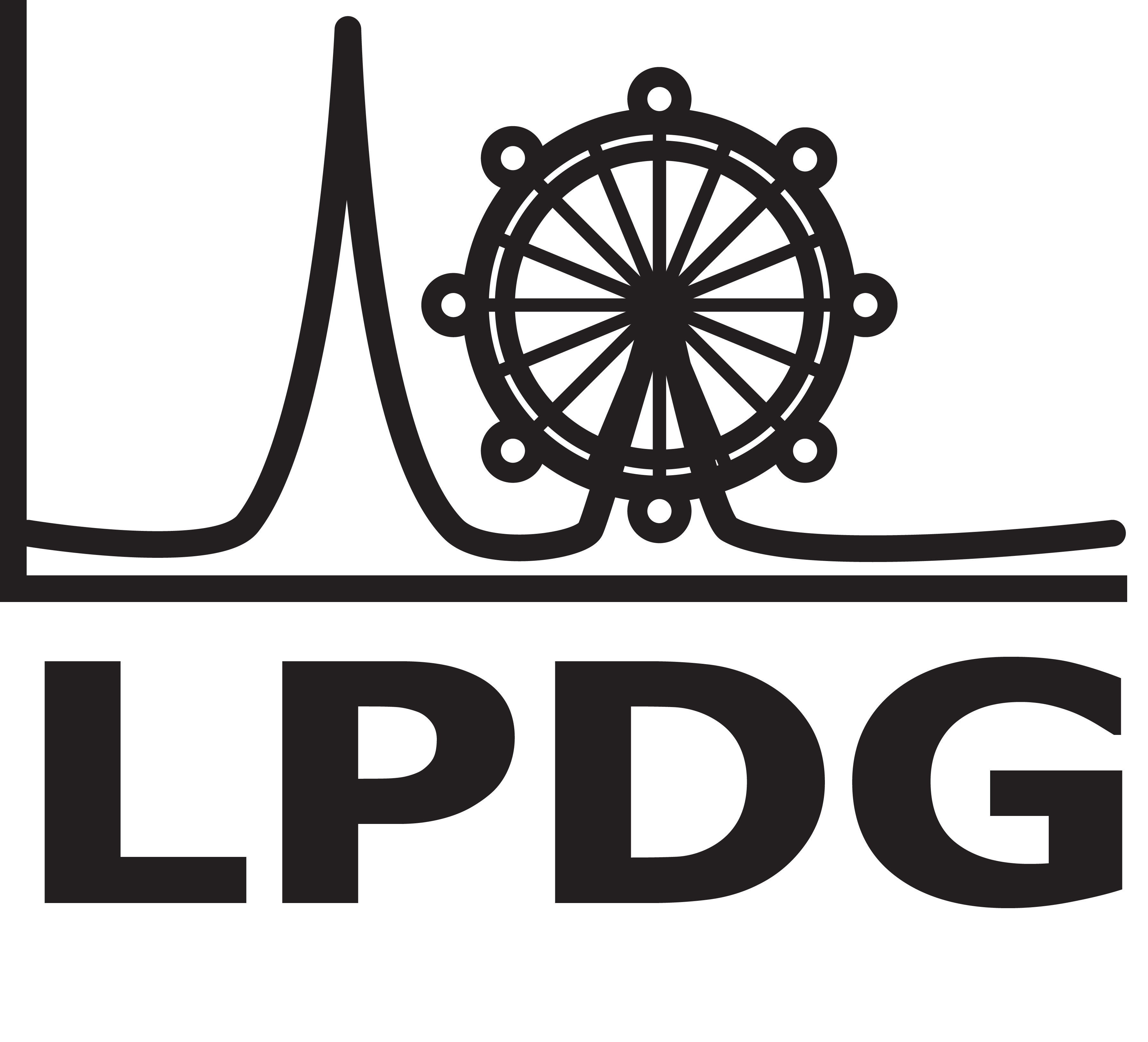September 2023
Lecturer in Proteomics and Integrative Data Analysis, Imperial College London
October 2022
Elected Chairperson of London Proteomics Discussion Group (LPDG)
June 2021
Honoury Research Fellow, Institute of Women's Health, University College London
June 2021
Honourary research position at the National Research Lobachevsky State University of Nizhni Novgorod, Russia
June 2020
Lead in Proteomics for the National Phenome Centre and the Division of Systems Medicine, Department of Metabolism, Digestion and Reproduction, Imperial College London. Reporting to Dr Matthew Lewis, Prof Jules Griffin and Prof Zoltan Takats. Alongside my research, I am establishing proteomics capabilities with the NPC. My research is to investigate the role of protein methylation in cancer, with a focus on the relationship between metabolic changes arising from MTAP deletion (occurs in 15% of all cancer) and protein methylation. For information click here.
June 2020
Invited to the organising committee, and to moderate a session for the pre-conference training programme for HUPO Connect 2020
November 2020
On the organising committee for the Virtual BSPR Annual Conference in 2021
November 2020
Honoury Position at the University of Sechenov University, Moscow, Russia
July 2019
On the founding organising committee for the London Proteomic Discussion Group. We organise a tri-annual proteomics meeting for the SE with an emphasis on supporting early career researchers.
2019
Joined the board of directors/management committee for the British Society for Proteome Research (BSPR) and developed the BSPR proteomic map, connecting proteomics scientists from across the UK.
May 2017
Took a research associate position in Chemical Engineering, Imperial College with Dr DiMaggio (until 2019, then Dr Ceroni), Professor Fuchter and Professor Brady to use methyltransferase-specific co-factors to discover new substrates of the methyltransferases DOT1L and SETD7. We also develop mass spectrometry and data analysis methodology for identifying novel substrates.
June 2016
Awarded PhD with thesis: "Nanoparticles, their Protein Corona and Impact on the Immune Function of Human Lung Cells". We showed that nanoparticles can sequester important innate immune proteins (surfactant protein A and D) following inhalation and that they may disrupt the function of pulmonary surfactant through binding of phosophoglycerol species and pulmonary surfactant protein B.
May 2015
Research assistant/associate position in Dr John Timm's lab at the Institute for Women's Health, UCL developing new network and longitudinal biomarker models for ovarian cancer.
Regulatory Licencing
I had a brief spell in producing licencing at the gobal office for Reckitt Benckiser in Hull.
July 2012
Started a PhD in Infection and Immunity at the University of Southampton in the lab of Dr Jens Madsen, Prof Howard Clark and Dr Paul Skipp
July 2010
BSc(hons) in Biology from the University of York
October 2011
MSc in Bioscience Technologies from the University of York
Cancer
I specialise in a technique, called mass spectrometry, which allows us to study proteins and how these essential biological molecules interact with each other in cancer. We focus on modifications (post translational modifications) to these proteins that can affect their function, localisation and turnover, in particularly I am interested in protein methylation. I combine highly multidisciplinary research to identify and isolate potential new substrates and inform on biological impact of protein methylation.
Data Analysis
I have developed a number of tools for data analysis for mass spectrometry data and biomarker discovery. Biomarker tests often use a threshold based upon a population and this value may not be relevant to an individual. We have developed a longitudinal algorithm for diagnosing Ovarian Cancer; the test uses changes in an individual over time and thus is personalised. We also have developed a network-based biomarker model (parenclitic network) which can combine many pieces of information about an individual to confer a diagnosis.
Research Vision
My goal is to use and develop state-of-the-art experimental and analytical methodologies to uncover molecular changes in the onset of cancer and realise new therapeutic opportunities.

About me
My Research
My goal is to use and develop state-of-the-art experimental and analytical methodologies to uncover molecular changes in the onset of cancer and realise new therapeutic opportunities. Protein post-translational modifications (PTMs) modulate protein function through affecting binding kinetics, structure, location and turnover. This layer of regulation goes some way in explaining the lack of correlation between mRNA and protein expression in mammalian cells and in many cases is a direct readout of protein activity, and thus the phenotypic properties of a cell. By uncovering new PTMs within biological context (e.g. disease or cellular process), and using systems-based analytical approaches, I hope to uncover new pathways and regulatory processes in cancer, identify novel therapeutic targets and develop new tools to support scientific inquiry. My research is highly multidisciplinary, combining chemical, mathematical and physical approaches.
About me
Society Involvement
I am on the management board/board of directors for the BSPR. The society promotes proteomics across the UK, funding speakers, travel and organising annual meetings. I am also a founding member of the organising committee and communications officer for the London Proteomics Discussion Group (LPDG). Founded in 2019, the LPDG runs meetings 3 times a year in central London. The ethos behind the seminar series is to promote discussion, which we do so by avoiding auditorium layouts and inspiring discussion with proteomics challenges over beer and pizza!


About me
Teaching
I regularly lecture and run workshops on proteomics for MSc and MRes courses at Imperial College London. I am module lead on for the Grant Writing Module for the Biomedical Research MRes in the Department of Metabolism, Digestion and Reproduction.
Awards and Presentations
Jan 2026: Action Medical Research - £229,743.13
GGranular Insights: uterine NK cell granules in placentation (PI: Victoria Male)
September 2025: Rosetrees - £18,177
Granular Insights: uterine NK cell granules in placentation (PI: Victoria Male)
February 2025: Waters Success Story
February 2025: Sciex User Meeting
SWATH Proteomics of Thawed Brain Tissue
October 2024: Waters Webinar - Making Manual Pipetting Obsolete
Andrew+ - Supporting Proteomics Sample Preparation
September 2024: AI, ML and Data Meetup (AICamp)
Prophetic Proteins: Predicting Disease Fate with Machine Learning
August 2024: Alzheimer's Research UK - £267,328.13
Proteomic Changes at the Synapse Specific to Parkinsons's Disease Dementia (PI: Dr Yu Ye)
May 2024: Irish Mass Specteometry Society Meeting
Data Acquisition to Synolitic Network Analysis
March 2024: 7th LPDG Meeting
Waters-sponsored speaker: "Using Andrews Plus for Proteomics Sample Prep"
March 2024: The Royal Society
How do stress-induced proteasome condensates impact cellular proteostasis? (PI: Dr Yu Ye)
January 2024: Festival of Genomics and Biodata, London
"Prophetic Proteins: Unravelling Disease Fate Through Network Biomarkers"
Novemeber 2023: 16th India Proteomics Society Meeting
Key-note speaker: "Data Acqusition to Synolitic Network Analysis"
March 2023: 6th LPDG Meeting
Sciex-sponsored speaker: "Data Aquisition to Synolitic Network Analysis"
March 2023: Sciex Proteomics Workshop
Invited Speaker: "Data Aquisition to Synolitic Network Analysis"
March 2023: Blood Cancer UK - £279,762.72
The Role of CXXC1 and SETD1A in Multiple Myeloma Co-I (PI: Prof Anastasios Karadimitris)
November 2022: EPSRC Core Equipment Award 2022 - £63,000
Co-I (PI - Prof Mary Ryan)
November 2022: MRC World Class Labs Capital Equipment Award - £673,345
Building research capacity with high-throughput ultra-performance liquid chromatography high resolution Q-TOF Application Lead
July 2022: BBSRC Alert21 - £433,938.96
A proteomics platform to enable next generation multidisciplinary bioscience Co-I (PI: Prof Ed Tate).
July 2022: BSPR Annual Conference
Presentation: SP3 Based Sample Preparation from Low Concentration, Large Volume Glial Nuclei
June 2022: 60th LBMSDG Meeting
Invited to present "Methyltransferase-Specific Cofactor Targeting DOT1L"
March 2022: Integrative Analysis Project
Invited by Prof Paul Matthews to present the application of Syinolitic networks for integrative `omics analysis in neurological disease.
UKDRI Collaborative Proteomics Studies Award - £10,183
Nuclear Factors Associated with Microglia Activation as Modulators of Disease-associated Cell States. With Dr Alexei Nott
UKDRI Collaborative Proteomics Studies Award - £14,205
Developing a High Throughput Proteomics Assay for Dementia Research. With Dr Brenan Durainayagam, Dr Rui Pino and Dr Abbas Dehghan
CRUK-EPSRC Early Detection and Diagnosis Award - £507,787.12
Serial Artificial Intelligence/Machine Learning Classifiers for Personalised Risk Stratification and Early Detection of Lung, Bowel and Pancreatic Cancers in Women. With Dr Oleg Blyuss, Dr John Timms, Dr Tatjana Crnogorac-Jurcevic, Prof Alexey Zaikin, Prof Usha Menon
BSPR Interact 2021 Session Chair
Session co-chair for the computational biology session.
Departmental Rewards and Recognition - bronze
Department of Chemical Engineering, Imperial College London
HUPO 2020: Pre-Congress Training Programe
Session Moderator: Proteogenomics Live Session.
HUPO 2020: Virtual Congress Meeting
Session Co-chair: CoVID-Proteomics.
MRC-NIHR Methodology Research Programme (Co-I) - £557,000
(PI: Prof Alexey Zaikin): "Construction of Graph-based network longitudinal algorithms to identify screening and prognostic biomarkers and therapeutic targets (GBNLA)"
University of Bologna, Department of Experimental, Diagnostic and Speciality Medicine
Invited seminar: "Parenclitic Networks Applied to Ovarian Cancer Prediction and Their Further Applications with Emphasis on SNP-SNP Interactions"
Volga Neuroscience 2018
Invited speaker: "Parenclitic Networks Applied to Ovarian Cancer Prediction"
MJ Dunn Fellowship
£1,500 competitive travel award from BSPR
Human Proteome Organisation Annual Symposium
Presentation: "Longitudinal Analysis of Serum Biomarkers for the Diagnosis of Ovarian Cancer"
Institute for Women's Health Annual Conference
Presentation: "Longitudinal Analysis of Serum Biomarkers for the Diagnosis of Ovarian Cancer
London Biological Mass Spectrometry Discussion Group
Presentation: "Nanoparticles - Interactions with Pulmonary Epithelial Lining Fluid"
FENAC Academic Workshop
Presentation: "Nanoparticles - Interactions with Pulmonary Epithelial Lining Fluid"
BSPR Annual Meeting
Poster: "Using mass spectrometry to characterise the interaction of airborne nanoparticles with pulmonary lipids and proteins"
F1000 Poster of the Month
"Nanoparticles, their protein corona and effect on the immune function of human lung cells"
5th Zing Bionanomaterial Conferece
Poster: "Nanoparticles Interacting with Protein and Lipids can Disrupt Pulmonary Surfactant"
BSI Travel Grant
£1,500 competitive award
Royal Society of Bio-Nano Interactions Conference
Poster: "Nanoparticles, Their Protein Corona and Impact on the Immune Function of Lung Cells"
British Society of Immunoloy Congress
Poster: "Nanoparticles, Their Protein Corona and Impact on the Immune Function of Lung Cells"
BSI Travel Grant
£1,500 competitive award
FENAC Seminar Series
Poster: "Nanoparticles, Their Protein Corona and Impact on the Immune Function of Lung Cells"
Science is fun. Science is curiosity. We all have natural curiosity. Science is a process of investigating. It's posing questions and coming up with a method. It's delving in.
Sally Ride
As scientists, we step on the shoulders of science, building on the work that has come before us - aiming to inspire a new generation of young scientists to continue once we are gone.
Stephen Hawking
As history has shown, pure science research ultimately ends up applying to something. We just don't know it at the time.
Neil deGrasse Tyson
In nature, when you conduct science, it is the natural world that is the ultimate decider in what is true and what is not.
